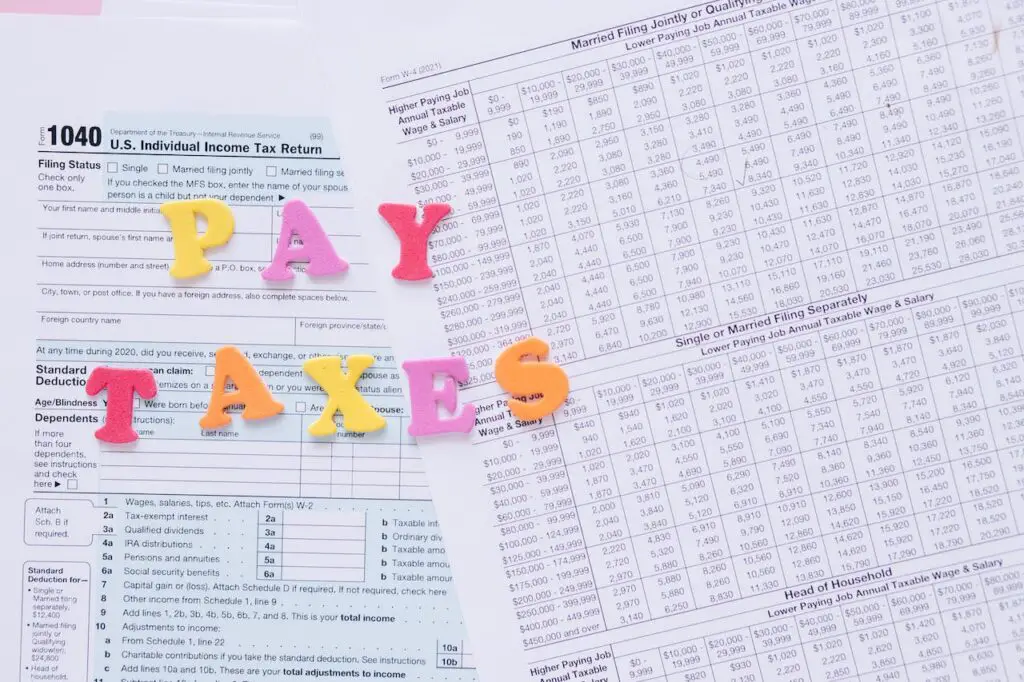As we approach the 2024 tax season, there’s hope for American taxpayers. Recent insights offer optimism, potentially projecting 2024 tax refunds to surpass last year’s by up to 10%. This shift comes after 2023 saw reduced average refunds, causing concern. The expiration of pandemic-era benefits played a role, leaving taxpayers wondering about the future. However, 2024 might bring relief, particularly for those whose incomes didn’t keep up with inflation. Projections suggest a brighter outlook for tax refunds this year.
The 2023 Tax Refund Setback
In 2023, the average tax refund fell nearly 3%, reducing financial support for many Americans. This decline, coupled with the struggle against rising inflation, highlighted the importance of tax refunds as a vital yearly boost for households. Families faced a double blow as the smaller refunds coincided with inflation eating into their buying power. These refunds, often a significant annual cash injection, help pay off debts or bolster savings. The drop in 2023 became a pressing issue, emphasizing the need for a potential upturn in 2024 to provide much-needed relief for individuals navigating economic challenges.
Tax Refund Calculator for 2024

There are handy tools available for those keen on figuring out their potential tax refunds in 2024. Taxpayers can use 2024 tax refund calculators offered by companies like H&R Block and platforms like NerdWallet. These calculators provide a sneak peek into what individuals might expect regarding refunds based on their financial information. It’s important to note that not everyone will witness a significant increase in their refunds. Nevertheless, these tools serve as valuable resources for gaining insights into possible outcomes tied to individual financial situations.
Inflation’s Unexpected Boon
Surprisingly, inflation could benefit taxpayers this year. In 2023, the IRS made adjustments to tackle inflation. They increased tax brackets by 7.1% and raised the standard deduction. This move lays the groundwork for the chance of more substantial refunds. If your income didn’t match inflation, there’s potential for an enhanced refund—maybe up to 10%. The IRS’s actions create an environment where those who didn’t see their incomes rise with inflation could experience a financial boost regarding their tax refund in 2024.
Winners and Losers in the Tax World

In the dynamic of taxes, outcomes vary—some gain, some lose. Those benefiting from expanded home energy credits or facing inflation challenges might enjoy larger refunds. Conversely, those with side gigs who neglected quarterly self-employment taxes may owe the IRS. It’s a diverse landscape in which financial choices shape results. Those navigating wisely within tax regulations often emerge with favorable outcomes, while oversights can lead to unexpected obligations.
Social Security Beneficiaries Beware
However, Social Security recipients might encounter increased taxes. The limit triggering taxes on Social Security benefits hasn’t changed since 1984, ignoring inflation. This poses an unforeseen tax burden for retirees. The fixed threshold, established in 1984, disregards rising living costs. As a result, retirees might experience a heavier tax load on their Social Security income. This unaltered threshold doesn’t align with the economic shifts over the years, potentially impacting the financial well-being of Social Security beneficiaries. It’s a circumstance where the tax structure hasn’t adapted to the changing economic landscape, affecting those relying on Social Security for their retirement income.
Earned Income Tax Credit Expansion

Families with lower incomes and kids could benefit from the boosted Earned Income Tax Credit in 2023. The maximum credit, now at $7,430, offers more help than the previous year’s $6,935. This increase provides extra financial relief for eligible families. The Expanded Earned Income Tax Credit aims to support those facing financial challenges, recognizing the importance of assisting low-income households with children. This positive adjustment reflects efforts to enhance financial support structures, recognizing families’ economic realities in the current tax year.
To read about Ohio Social Media Law, click here.
Filing Season Kick-off
The IRS is set to start the tax filing season on January 29, giving people until April 15 to submit their returns. If you need extra time, extensions are an option. For residents in Maine and Massachusetts, state holidays extend the deadline to April 17. It’s a routine process, providing ample time for everyone to complete their tax obligations. Extensions offer flexibility, catering to those with more complex financial situations or unexpected delays. The IRS aims to streamline the process, ensuring taxpayers have a reasonable timeframe to fulfill their responsibilities without unnecessary stress.
Expected Refund Timeline

If you file your taxes on January 29, you might get your refund within 21 days. Payments are expected around February 19. But be cautious—some returns may face extra scrutiny. The IRS recommends using tools like “Where’s My Refund?” on IRS.gov or the IRS2Go app to track your refund. These tools help you stay updated on your refund status. It’s wise to monitor the process to ensure everything is on track and avoid surprises. Remember, patience and vigilance are essential when it comes to tax refunds.
Final Words
As taxpayers prepare for the 2024 tax season, the prospect of a capital refund brings relief. How inflation, adjusted provisions, and expanded tax credits interact forms a diverse landscape, impacting individuals differently. Your status as a winner or a potential taxpayer owing money hinges on your unique circumstances. Staying informed and using available tools is vital for precise estimations. The prospect of larger refunds provides reassurance, yet the outcome depends on factors specific to each taxpayer. Stay informed, utilize tools, and navigate the 2024 tax season with a clear understanding of your financial standing.

